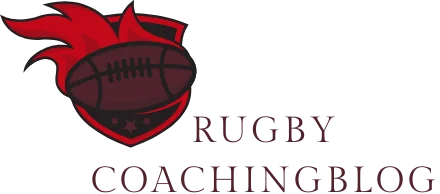Table of Contents
ToggleImagine spending years mastering the art and science of reading, only to discover that it opens up a world of opportunities not just for you, but for countless others. A Doctorate in Reading and Literacy doesn’t just mean hanging a fancy degree on your wall: it means shaping how new generations engage with the written word, enhancing their comprehension, and igniting a love for literacy. With a sprinkle of humor and a wealth of knowledge, let’s embark on a journey through the ins and outs of obtaining this prestigious degree. Who knows? You might just find that a life devoted to reading isn’t so monotonous after all.
Overview Of Doctorate Programs In Reading And Literacy

Pursuing a Doctorate in Reading and Literacy is a significant step for anyone dedicated to understanding and improving literacy education. These programs typically cater to educators, researchers, and policymakers, focusing on advanced study and extensive research about reading processes, literacy development, and pedagogical strategies. Most programs blend coursework with applied research, emphasizing both theoretical knowledge and practical application.
Generally, students engage with topics like literacy assessment, reading intervention strategies, and literacy policy. Admission often requires a master’s degree in education or a related field, where students have laid the groundwork in pedagogy and educational psychology.
Duration and Format
Most doctorate programs span three to five years, including dissertation work. Some institutions offer options like online learning or hybrid formats, making them more accessible to busy professionals. Whether one chooses a full-time study or a part-time commitment depends on personal circumstances, but all paths lead to a deeper understanding of how individuals learn to read and comprehend text.
The Importance Of Reading And Literacy Education
Reading opens doors, sparks creativity, and fuels intellectual pursuits. It’s not just about sounding out words: reading is a critical skill that extends beyond the classroom walls into every facet of life. Literacy education holds immense importance in today’s society. Without a solid foundation in reading and literacy, individuals may struggle to engage with essential resources, participate in civic duties, or access job opportunities.
Lifelong Learning and Social Equity
Literacy fosters lifelong learning, enabling individuals to continuously expand their horizons. Besides, it plays an undeniable role in promoting social equity. Individuals from underserved communities often face challenges that hinder their literacy development, perpetuating a cycle of disadvantage. Hence, educating future educators through doctorate programs not only benefits them personally but influences entire communities by helping break these cycles.
Eventually, investing in literacy education translates into stronger societal foundations and economic growth. A well-educated populace can better adapt to changing job markets and innovation, ensuring progress and inclusivity.
Curriculum Structure And Key Components
Doctorate programs in Reading and Literacy are designed to provide a comprehensive blend of theoretical knowledge and practical skills. Typically, the curriculum includes core areas such as research methodologies, advanced literacy development, and specific reading instruction techniques.
Core Courses
Courses might include:
- Theories of Literacy Development: Analyzing various approaches and theories related to how individuals develop reading skills.
- Literacy Assessment and Evaluation: Developing competent assessment strategies to evaluate reading proficiency.
- Culturally Responsive Literacy Instruction: Understanding how diversity impacts literacy education and implementing inclusive practices.
- Technology in Literacy Education: Exploring how digital tools can enhance literacy teaching and learning.
Field Experience
Doctorate students also engage in field experiences, allowing them to apply their knowledge in real-world educational settings. Through internships, students can develop critical skills and networks that will greatly benefit their future careers.
Career Opportunities With A Doctorate In Reading And Literacy
Graduating with a Doctorate in Reading and Literacy opens various avenues for professionals. From academia to administration, the options are wide-ranging.
Academia
Many graduates pursue careers as university professors or researchers, teaching literacy methods and mentoring future educators. They often engage in publishing research that can influence education policy and practice.
School Administration
Others may find roles in educational leadership, such as literacy coordinators or program directors, where they can create and oversee literacy curriculum and programs within K-12 systems.
Educational Consultants
Also, education consultants with a doctorate can work with schools districts, helping carry out effective reading programs and literacy strategies. They offer valuable insights to bridge literacy gaps among various community demographics.
In essence, a Doctorate in Reading and Literacy doesn’t just prepare individuals for a job: it equips them to become leaders in literacy education.
Research Opportunities And Innovations In Literacy
Research is pivotal in the field of literacy education. A Doctorate program immerses students in numerous innovative literacy research methodologies. It also provides opportunities to work on groundbreaking projects that could reform literacy instruction.
Focus Areas
Students might engage in studies focusing on:
- Emerging technologies in reading education: Analyzing how digital platforms can improve reading skills.
- Language development in diverse contexts: Investigating literacy experiences among bilingual or multilingual groups.
- Literacy interventions: Evaluating the effectiveness of specific strategies aimed at struggling readers.
Impact of Research
The impact of this research is significant. Findings from these studies often directly inform educational practices and contribute to shaping policies surrounding literacy education. Through their work, graduates can influence how literacy is taught, ensuring it evolves to meet contemporary needs.
Challenges And Considerations In Pursuing A Doctorate
While pursuing a Doctorate in Reading and Literacy can be fulfilling, it’s not without challenges. Individuals embarking on this journey must be prepared for the rigorous demands of graduate-level work.
Time Commitment
The time commitment is substantial. Beyond coursework, students must dedicate significant effort towards dissertation research, which can be a challenging job requiring substantial self-discipline and time management skills.
Financial Considerations
Also, prospective students should weigh the financial investment. Doctorate programs can be costly, though many institutions offer funding opportunities or assistantships. Understanding one’s financial situation beforehand is crucial to making informed decisions about pursuing a doctorate.
Balancing Act
Also, balancing work, studying, and personal life adds another layer of complexity. Those already working in education might find it challenging to juggle their professional responsibilities with academic ones. Strong support systems and time management skills are recommendations for success in this try.





